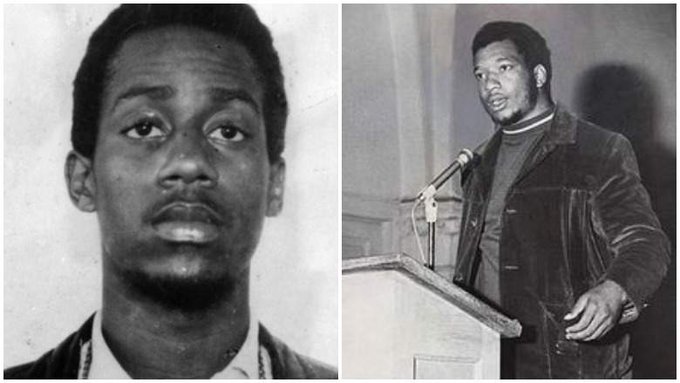
*Director Shaka King’s latest film “Judas and the Black Messiah,” tells the story of the 1969 murder of Illinois Black Panther Party Chairman Fred Hampton Jr. (Daniel Kaluuya). The film’s central point is the relationship that develops when FBI informant William “Bill” O’Neal (LaKeith Stanfield) infiltrated the Panthers. He provided information to the FBI that led to Hampton’s murder. He was 21.
When it comes to how O’Neal was recruited by the FBI, King said he heard “multiple stories” that O’Neal walked into a bar, flashed a fake FBI badge, and stole a patron’s car. He agreed to become an informant and infiltrate the Panthers in exchange for immunity.
“I’ve heard multiple stories. That’s one of them,” King said. “I’ve heard multiple stories that corroborate the FBI badge story.”
Reports said William even worked security for Hampton and had keys to Panther headquarters and safe houses, per face 2 Face Africa. He eventually provided the floor plan of Hampton’s apartment which the FBI and local police used to raid and murder Hampton.
“I think he was sorry he did what he did. He thought the FBI was only going to raid the house,” Ben Heard, O’Neal’s uncle, said in 1990.
READ MORE: Director of ‘Judas and the Black Messiah’ Fact-Checks Pivotal Moments from Film
Here’s more from Face 2 Face Africa:
O’Neal hardly spoke of his undercover years but in a 1984 interview with the Tribuneone of his last public interviews, he mentioned that he “thrived” on his work with law enforcement though in the end, he realized he had been ”just a pawn in a very big game.”
His undercover role did leave him “restless, but without remorse,” he said. ”If you ask me if the gains outweigh the loses, I think so.”
”I think if I look back at myself . . . I say, if I had never met Mitchell I would probably be in jail or dead.
”If you ask me if I`m a happy man-I`m not happy; no, I`m not even content.”
So how much was he paid for his work?
“Generally, I was paid, paid in cash, and normal amounts would have ranged from three to five hundred dollars depending on my needs. If I requested a specific amount, I knew that I could get it,” O’Neal said in a 1989 interview.
“But the payments were very infrequent, I mean, Mitchell determined, even Mitchell determined very early on in the game that spending money was the quickest way to blow your cover. Also, I was living in the Panther environment, I was living in a Panther house, which they called a crib, I was eating with them and sleeping with them, and I was with them 24 hours a day, so I had very little need for money, so I was always assured that my money was being held in trust, and that I could draw from it, draw down on it any time I got ready, or any time I had a legitimate need that wouldn’t compromise my security. I suppose at any point if I needed a thousand dollars or two thousand dollars from the FBI, I couldn’t have gotten it.”
The day before his death, O’Neal went to his uncle’s residence in Maywood. According to Heard, O’Neal ”kept going to the washroom,” he recalled. ”He stayed in there for a long time. The last time he came out he tried to go out the window. I pulled him back, but he broke loose and ran toward the expressway.”
“I just had my house shoes and pants on,” Heard said. “I couldn’t run after him like that. I couldn’t have caught him anyway. There was a woman standing in front of the house and she said, ‘Lord, it sounds like somebody got hit on the expressway!’”
Police said, “he ran down the embankment near 5th Avenue, crossed the eastbound lanes, and was struck by a car in the westbound lanes,” where he died.
“Judas and the Black Messiah” is now in theaters and streaming on HBO Max.
We Publish News 24/7. Don’t Miss A Story. Click HERE to SUBSCRIBE to Our Newsletter Now!





